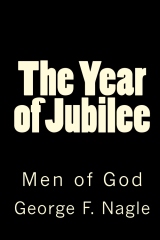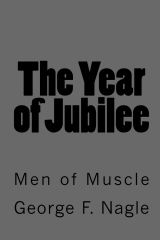
Harrisburg on the eve of Civil War
Study Areas
Murder Trial of John Read, 1821
Can a Fugitive Slave Use Deadly Force to Defend Himself?
John Read lived in Chester County, Pennsylvania as a free man, raising a family and working in the community. He maintained that he was free, but being wary of kidnappers who snatched free Blacks from northern communities to sell South, he made it a habit to stayed vigilant and armed. His vigilance, as it happens, was wise, as one night a gang of Maryland men came for him. The resulting violent confrontation left two of the Maryland men dead and Read charged with their murders. He won an acquital verdict for the first murder charge. His second trial became a landmark case, pitting the rights of fugitive slaves as defined by Pennsylvania law against the rights of slave holders as defined by the federal Fugitive Slave Law. The below account of the second trial was published in numerous northern newspapers.
Newspaper Account of Read's Second Trial
From the Westchester (Penn) Record Nov 21
INTERESTING TRIAL.
The trial of John Read, for the murder of Peter Shipley, came on at the late court of Oyer and Terminar, in this county. The case from the particular circumstances attending it, had excited an unusual degree of interest. The prisoner has been tried in May last for the murder of Samuel G. Griffith and acquitted.
On Monday the 5th inst. the trial commenced before his honour Judge Darlington, president, and Judge Ralston and Davis associates. Counsel for the commonwealth, Dick, assisted by Barnard and Duer; for the prisoner, Bell and Tilghman.
The following is a brief, and we believe a fair statement of the case.
Read, the prisoner, a black man, two or three years ago, came into Pennsylvania from Maryland; said he was free, although an attempt was made to hold him in slavery; frequently declared himself afraid of kidnappers; and often went armed. He married in Pennsylvania, and has one child, hired a house in Kennet township, and worked about the neighborhood.
On the night of the 14th of December, 1820, his wife was from home; he was alone; he lay down, but felt uneasy and could not sleep; got up and made a fire; about midnight he thought he heard persons walking about the house; one at lenght rapped smartly at the door; he asked what they wanted; the person answered they had authority to search, and had come for stolen goods. Read told them to go away; he believed they were kidnappers; if they were not, he had no stolen goods, and if they would wait till morning, they might search. Soon after, they began to force the door; he rolled a barrel of cider against it; told them if they attempted to come in, he would kill them. They pried the door off the hinges and it fell over the cider barrel; at the instant he heard the click of a pistol cocking; then said Read, "it is life for life;" one of the persons said, "rush on Shipley; damn the negro, he won't shoot." A person attempted to enter; he shot him; another attempted to come in; he struck him once or twice; then seizing his gun, he ran to the neighbors, and told them the kidnappers had attached his house; that he had killed two; asked for more powder, as he was afraid they would pursue him. He made no attempt to escape. After being arrested and in custody, one witness testified that he heard Read say, that after he got out of the house and to the fence, on looking round he saw one of the men trembling; that he went back and beat him until he thought he was quite dead.
When the neighbors came upon the ground the next morning, they found Mr. Griffith lying on the bed, in the black man's house, dead. -- Mr. Shipley, the overseer, for whose murder the prisoner was now on trial, had got up; carried him there, taken his pocket book and watch out of his pocket, and put them in his own, then went to a neighboring house about 100 yards off, and prevailed upon Mrs. Harvey to let him in. There he languished eight days and died.
The club was found in the house close by the cider barrel; two pistols loaded, one of them cocked, a whip and pair of gloves were found at the door; a pair of handcuffs and a rope were found in the pocket of Mr. Shipley; a third pistol in the pocket of Mr. Griffith. There were but two wounds upon Mr. Shipley.
It appeared sufficiently clear, that Read was the son of Maria, formerly an African Queen, recently a slave, and no proof of his manumission was shewn. He was claimed by Mr. Griffith from whose service he had absconded. -- Having learnt where he was, Mr. Griffith, his overseer Mr. Shipley, and two assistants, Minner and Pearson, came to the house occupied by Read, about midnight; and made the attempt, which resulted in the death of both Mr. Griffith, and Mr. Shipley as related.
The principal point disputed were, whether Mr. Griffith intended to take him before a judge, in violation of an act of Assembly.
2d. Whether Read knew his master.
3d. What right could Read, as a slave, acquire of self defence in Pennsylvania.
4th. Whether he returned as stated that he confessed to one witness, from the fence and beat Shipley.
It is impossible for us, our limits do not admit it, to go into the particular arguments, in relation to the facts and the law, as will be perceived when we state, that the cause began on Monday teh 5th and continued until Tuesday teh 13th; occupying the court and jury nine and ten hours each day.
It was fully and ably argued. Mr. Dick, for the prosecution, took up about one hour and a half in a sensible and argumentative address. -- He was followed by Mr. Bell, on behalf of the prisoner, in a maiden speech, distinguished for clearness, method and force. Mr. Tilghman, for the prisoner, began to speak on Monday afternoon at three o'clock, and spoke until half past seven. The deep and fixed attention of a crowded audience, for four and a half hours, shewed the power of genius, in enchaining in fetters of eloquence the human mind. Tht ecourage and humanity of Mrs. Harvey in rising at the mid-hour of the night, although alone, and taking in a stranger who was moaning at her door for assistance, were adverted to, with much force and beauty, accompanied by the quotation from Walter Scott:
"Oh, woman! in our hours of ease,
Impatient coy, and hard to please,
And variable as the shade
By the light-quivering aspen made;
When pain and anguish wring the brow,
A ministering angel thou!"
Mr. Duer began his argument in conclusion, on the part of the commonwealth, on Tuesday morning. He contended that the master had a right under the law of Congress, at any time and place, and at any hour, by himself or his agent, to seize his slave; that the slave had no righ to resist his master; that his house was no protection; that therefore, the master and the deceased Shipley his overseer, were in the exercise of a legal right, and Read, in resisting, in teh perpetration of a wrong; that Read must have known his master, and that, therefore, the killing, in resisting the legal attempt to arrest him, was murder in the first degree. Mr. Duer spoke for two and a half hours.
Judge Darlington then summed up the evidence and laid down the law in a charge of an hour and a half.
He adverted to the delicacy of his situation, having been on the other trial attorney for the commonwealth; but remarked that his regret was considerably diminished, by the consideration that the jury were the judges of the law, as well as the fact, in the case before them. He gave a lucid exposition of the whole law on the subject. In respect to the construction of the act of assembly of 1820, on which much reliance was placed, he differed from the opinion of Judge Ross, delivered at Norristown. The counsel for the prisoner had contended that by this act, the attempt to take any person claimed as a slave, out of the limits of this state [Penn.} without taking him before a judge to prove his right, was declared a felony; that from the time and circumstances of the attack, no doubt could exist, but that it was the intention of the party to take Read out of the state, in violation of that state act; that they were therefore in the commission of a felony, and Read was justified in resisting to the death.
The counsel for the commonwealth, maintained, that this act was intended to prevent kidnapping or manstealing; that it did not apply to a master who intended, to arrest and reclaim his runaway slave, whom by the act of congress, he was authorized to arrest or seize, when and where he could. But Judge Ross had decided that the act had reference to masters seizing their slaves, and taking them out of state, without going before a judge. Judge Darlington was, on the contrary, of opinion that such was not the construction, inasmuch as the law so construed inflicted the same penalty, seven years imprisonment in the penitentiary, upon the acknowledged master reclaiming his slave, and taking him away, as upon the kidnapper who would attempt to carry off a freeman and this opinion was confirmed by the construction of the supreme court, of the old act of assembly in relation to the same subject.
He then examined the evidence, and weighed it with great perspicuity and impartiality, expressing his opinion that there was not conclusive proof, that Read knew his master or overseer; and intimating very clearly, that the witness who testified that the prisoner confessed he returned and beat the deceased until he thought him quite dead, was mistaken.
The Jury, immediately on the court opening in the afternoon, returned to the box with a verdict of manslaughter. The next day the prisoner received his sentence of nine years imprisonment in the penitentiary.
SOURCE: The National Gazette (Philadelphia), 26 November 1821
Notes
Although the jury verdict kept Read from probable execution had he been found guilty of murder, the sentence of nine years imprisonment meant certain disaster for him and his family. A later attempt by members of the Griffith family to claim John Read and return him to slavery in Maryland was unsuccessful when they could not conclusivley prove he was the same man who had escaped years before.
Some records and sources give the defendant's name as John Reed.
Additional Sources
Summaries of the murder trials are here: https://www.chesco.org/1894/John-Reed-Murder-Trial
A biography of slaveholder Samuel G. Griffiths is here: https://www.rememberingbaltimore.net/2020/02/trading-with-enemy-shot-by-former-slave.html
An excellent modern legal analysis of the two trials, "Legal Practice and Pragmatics in the Law: The 1821 Trials of John Reed, "Fugitive Slave'," by Linda Myrsiades, may be found here: https://journals.psu.edu/pmhb/article/view/62879
The Year of Jubilee
Vol. 1: Men of God and Vol. 2: Men of Muscle
by George F. Nagle
Both volumes of the Afrolumens book are now available to read directly from this site.



